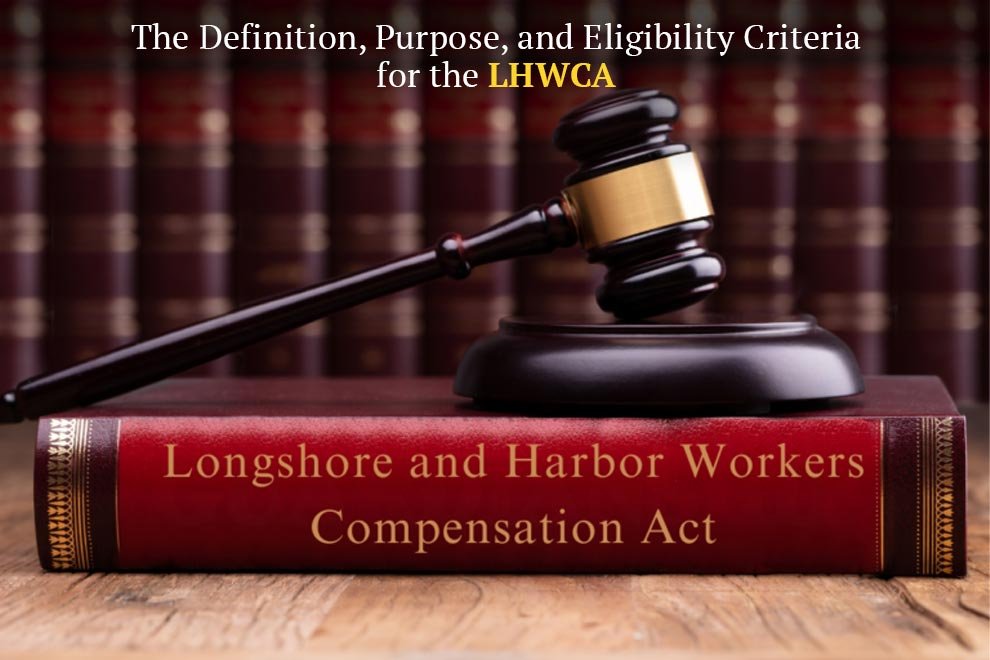Workers in the maritime industry have higher risks of getting injured because of the nature of their jobs. The Longshore Harbor Workers’ Compensation Act (LHWCA) was passed in 1927 to protect certain maritime employees.
Understanding the LHWCA is essential for workers and employers operating in the maritime industry. Victims who have gotten injured at work can get the help of maritime injury attorneys to ensure their rights are upheld according to the act.
In this article, we will discuss the definition of LHWCA, its primary purpose, and who is eligible for protection under the act.
Definition of LHWCA
The Longshore Harbor Workers’ Compensation Act (LHWCA) is a federal law that offers compensation to employees injured or disabled at work. It was designed to fill a gap, ensuring that maritime workers not covered under the Jones Act can still receive financial assistance.
LHWCA applies to individuals injured in navigable US waters. This includes those working at
- Docks
- Terminals
- Areas essential to loading, unloading, repairing, or building ships
Apart from the injured worker, the law provides death benefits to the worker’s dependents in case of fatal injuries. It also covers work-related diseases and hearing loss. According to the act, the compensation should be covered by the employer or an insurance company on behalf of the employer.
What Is the Purpose of LHWCA?
The LHWCA was created to address the unique risks maritime employees face while at work. Unlike traditional compensation laws, the LHWCA specifically targets workers in high-risk environments, such as those handling large cargo or working in unpredictable weather conditions.
The main purpose of LHWCA is to ensure that injured maritime workers are not left without compensation after a work accident. By providing settlements for medical care and rehabilitation, the Act helps workers recover and return to work if possible.
Eligibility Criteria for LHWCA
To benefit from the protection offered by the Longshore Harbor Workers’ Compensation Act (LHWCA), workers must meet certain eligibility criteria to ensure they fall within the intended scope. These are discussed in the sections below.
Types of Workers Covered
The LHWCA applies to maritime employees who do activities like loading, unloading, and ship repairs. These include:
- Ship repairers
- Shipbuilders
- Longshore workers
- Harbor construction workers
- Other individuals who perform essential duties in ship operations
However, it does not include seamen who are covered under the Jones Act and government employees, among others.
Location-Based Eligibility Criteria
As mentioned, the LHWCA covers incidents occurring in or near navigable waters, such as docks, piers, terminals, and wharves. Injuries that occur further inland or in areas unrelated to maritime commerce are not covered under the Act.
Exclusions from the LHWCA
Certain groups are excluded from the LHWCA, such as:
- Employees of recreational vessels below 65 feet lengthwise
- People who were injured because of intoxication
- Employees whose injuries were as a result of self-harm
- Anyone covered by state workers’ compensation law
- Aquaculture workers
- Anyone who does secretarial, clerical, data processing, or security work
- Those with temporary business in the areas covered, like suppliers and vendors
Conclusion
The LHWCA mainly offers support for injured maritime workers. It is important to fully understand the LHWCA to ensure your job role and responsibility fall under the Act’s coverage.










